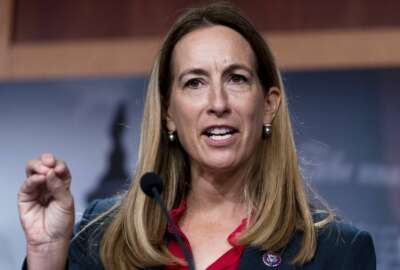Reid, Boehner announce stopgap spending deal
The top Republican and Democrat on Capitol Hill have announced an agreement to keep the government running on autopilot for six months when the current budget year...
WASHINGTON (AP) – Top congressional leaders have announced a deal to keep the government running on autopilot for the first six months after the current budget year ends Sept. 30.
The announcements from Senate Majority Leader Harry Reid (D-Nev.) and Speaker of the House John Boehner (R-Ohio) are aimed at averting any chance of a government shutdown this fall.
“This agreement reached between the Senate, the House and the White House provides stability for the coming months,” Reid said in a statement.
However, the six-month continuing resolution will not be introduced this week, Boehner said. Instead, lawmakers and their staffs will take time during August “to write legislation that can be passed by the House and Senate in September and sent to President Obama to be signed into law,” he said in a statement.
The deal is expected to lighten the crush of business in a post-election congressional session agenda that’s already overloaded.
The deal adheres to the $1.047 in budgetary spending caps agreed to in the deal reached last summer to raise the debt ceiling — a concession from Republicans who sought to cut $19 billion below the budget agreement. The GOP budget also called for shifting $8 billion more from domestic agencies to the Pentagon.
White House Press Secretary Jay Carney, who called the agreement a “welcome development,” said the President would work with leaders in both parties on a final bill.
Before the deal was reached, Congress had not yet approved any of the 12 appropriations bills setting agency funding for next year.
(Federal News Radio’s Jack Moore contributed to this report)
Copyright © 2025 Federal News Network. All rights reserved. This website is not intended for users located within the European Economic Area.





